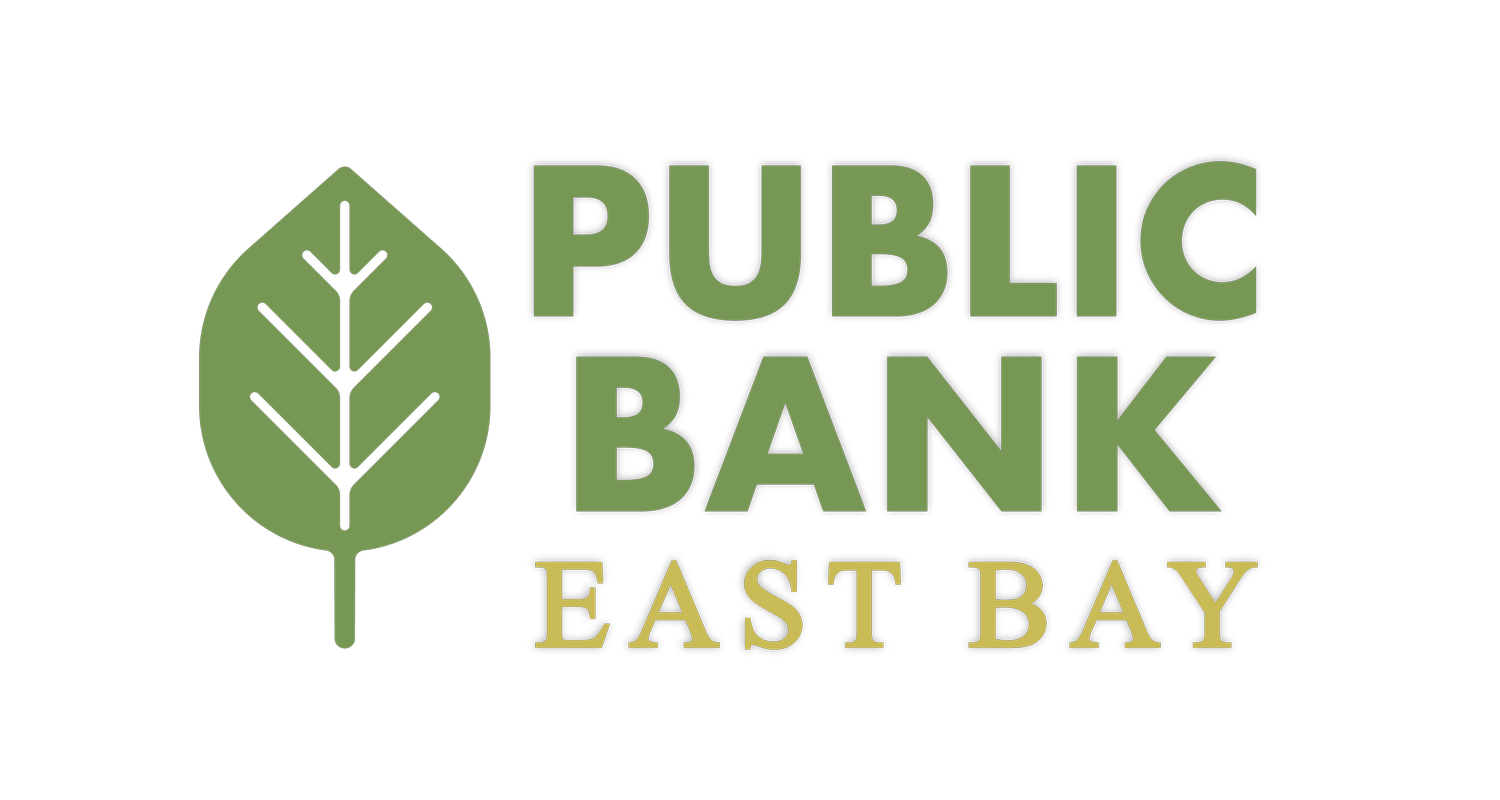Why Dr. Marc A. Weiss Believes Public Banking Is a Challenge Worth Taking On
Renowned urban strategist and former Clinton advisor shares why he sees Public Bank East Bay as a “catalyst for sustainable prosperity.”
“It was clear to me right away that PBEB is part of the same lineage as the Community Reinvestment Act, community development banks, and the grassroots organizing that came out of the civil rights movement,” he said in a recent interview. “It’s about public money being used for public good.”
Marc A. Weiss has spent the past five decades fighting for more equitable, sustainable, and locally-rooted economies. Now living in the Bay Area, Weiss says he was “immediately intrigued” when a former colleague introduced him to the Public Bank East Bay effort.
Weiss isn’t new to this terrain. As a young professor in the 1980s, he helped negotiate one of the largest CRA commitments in Chicago history, forcing big banks to reinvest meaningfully in the communities where they collected deposits.
Later, he worked inside the federal government, helping shape community finance initiatives that opened up credit for working people, especially women and people of color. He’s also the founding chairman of Global Urban Development, a think tank focused on inclusive prosperity in over 60 countries.
But it’s not just history that draws him to public banking. It’s the future.
Building Economic Power from the Ground Up
Weiss sees public banks like PBEB as essential infrastructure for local governments trying to move beyond extractive, Wall Street-driven financial models. “Right now, our public funds are often deposited in large commercial banks that don’t reinvest in our communities. That’s not just inefficient, it’s economically unjust,” he said.
By creating a public bank, local governments can recycle their own revenues (like taxes, fees, and surplus funds) into affordable workforce housing, clean energy infrastructure, and small business lending.
“PBEB has the potential to be catalytic,” Weiss said. “It’s a vehicle for a green and creative economic strategy in the East Bay that raises people’s incomes and quality of life in an equitable way.”
Small Business, Big Opportunity
Public banking’s impact on small business is especially promising, according to Weiss. He sees a key role for PBEB in helping fund commercial corridor revitalization, community business hubs, and buy-local initiatives.
“A public bank could buy the guaranteed portion of SBA loans, freeing up local lenders to make more loans,” he explained. “Or it could help finance coordinated efforts like revitalizing a business corridor or expanding BIPOC-owned businesses with structured incentives and partnerships.”
This kind of financial scaffolding is what Weiss calls “smart leverage” using public dollars to de-risk or catalyze private and nonprofit action.
Affordable Housing
When it comes to affordable housing, Weiss is clear-eyed. “Financing is necessary, but it’s not sufficient,” he said. “You also need subsidies whether from philanthropy, public grants, or higher wages because the math just doesn’t work otherwise.”
He believes PBEB can play a powerful role in pre-development and early-stage lending, especially in projects with layered capital stacks.
“The bank could provide early capital to get a project off the ground, knowing it will be taken out by larger permanent financing later,” he noted. “That kind of gap funding is critical and often missing.”
From Extractive to Regenerative
Weiss links PBEB’s mission to a much larger shift underway: the movement from an extractive economy to a regenerative one. “We’ve had a system based on take, make, waste and burning through natural resources without replenishing them,” he said. “That’s what led to climate change. We need to get richer by becoming greener.”
He believes public banks are one of the tools that can help cities make that leap by financing projects that build circular, sustainable economies. “The key is to align finance with the values of environmental justice, racial equity, and long-term resilience,” he said.
A Buffer Against Federal Chaos
With Congress deadlocked and federal programs for housing and infrastructure under constant threat, Weiss sees PBEB as a stabilizing force.
“We learned this in the Reagan years,” he said. “When the federal government pulls back, local governments and nonprofits step up. But they need financial tools to do it. PBEB can provide a buffer of strength when things fall apart at the top.”
“This is a challenge worth taking on.”
In the end, Weiss emphasized that he doesn’t see PBEB as just a financial institution. He sees it as a beacon.
“It’s about showing that another system is possible. A system that is fair, regenerative, and democratic,” he said. “We’ve waited too long to plant this tree. But the second-best time is now.”
Marc A. Weiss, Ph.D. is Chairman and CEO of Global Urban Development, an international policy organization advancing sustainable innovation and inclusive prosperity in 65 countries. A leading expert in urban planning and economic development, he has advised governments worldwide and served in the Clinton administration. He is also a visiting professor at UC Berkeley and author of The Rise of the Community Builders.

